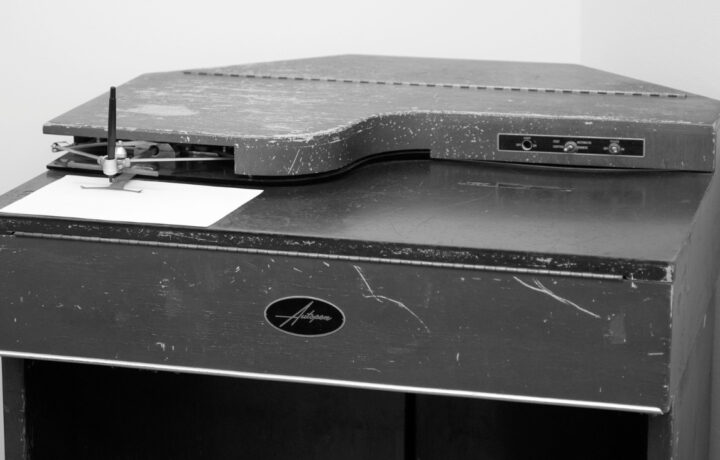The phrase, “The pen is mightier than the sword,” is credited to English writer and politician Edward Bulwer-Lytton for his 1839 play Cardinal Richelieu, however, the sentiment has been expressed for centuries. It serves to acknowledge that words and communication can have more impact than physical force.
Yet, this week the question to ask is whether “The autopen is indeed as mighty,” or if its use is legally binding.
The issue came up as the current administration is alleging that documents signed by the former president are null and void because an autopen was used. Trump has directly suggested that Biden didn’t “know anything about” them, specifically presidential pardons that were signed just days before he left the White House.
What Is An Autopen?
As the name suggests, an autopen is simply a printer-sized machine that duplicates an individual’s signatures using real ink. It is often used by public figures to sign documents in bulk, and autopens are widely used for everything from bulk correspondence to the signing of commercial merchandise – items like baseball cards and gloves.
As NPR reported, the Maryland-based Autopen Company has been providing the devices to “universities, government agencies, and other institutions for more than 60 years,” while the company noted, “The Autopen has long been a tool for the world’s most influential leaders, allowing them to more effectively apply their time and attention to important issues without compromising the impact of personalized correspondence.”
President Thomas Jefferson famously employed a polygraph, a precursor device that allowed the writer to move two pens simultaneously – allowing two copies of documents to be drafted simultaneously.
Most modern presidents have used autopens during their time in the Oval Office to sign correspondence and other documents, while President Barack Obama is now credited with being the first known president to sign legislation with an autopen. A national security measure was signed via autopen while Obama was in France.
However, a 29-page document published while President George W. Bush was in office concluded that the president doesn’t need to personally perform the physical act of signing a document, but rather simply needed to approve it.
Are Autopen Signatures Null and Void?
Critics of the use of autopen suggest that documents could have been signed without a president’s knowledge, which is now the basis of claims being made against President Biden—notably that the pardons he issued are null and void.
However, pardons don’t technically require a signed document to go into effect.
“Under Article II, Section 2, Clause 1 of the U.S. Constitution, the President has the unilateral authority to grant pardons, ‘The President shall have Power to grant Reprieves and Pardons for Offenses against the United States, except in Cases of Impeachment,'” explained geopolitical analyst Irina Tsukerman, president of threat analysis firm Scarb Uprising.
“The text places no explicit limitation on the format or method by which the pardon must be issued,” Tsukerman told ClearanceJobs. “Historically, pardons have taken varied forms, including written documents, proclamations, and direct oral communications. This broad authority suggests that, in principle, a president may delegate the physical act of signing while still retaining ultimate decision-making power.”
Presidential Discretion
However, a key legal question is also whether the use of an autopen for mass pardons constitutes a valid exercise of presidential discretion – or whether it represents an improper delegation of executive authority.
“While the Constitution is silent on the form of presidential signatures, various statutes and executive procedures regulate the use of autopen in official acts,” Tsukerman added.
She noted “31 U.S.C. § 1342 (Anti-Delegation Principle),” which states that the president cannot delegate functions requiring discretion unless specifically authorized by law.
“Signing a pardon is an act of personal discretion, which means it cannot be fully automated or assigned to an aide without presidential authorization,” Tsukerman continued. “The DoJ’s Office of the Pardon Attorney historically requires evidence of personal presidential intent behind a pardon. If a court found that an aide, rather than the president, approved the final list, mass autopen use could be challenged on grounds of improper delegation.”
Yet, that doesn’t seem to be the case with the pardons Biden made in the final days of his administration. While the issue could lead to an investigation and even legal challenges, it is unlikely the pardons can be overturned.
“If there is no contemporaneous record of the president approving each case, a challenge could be based on lack of due process,” said Tsukerman. “Yet, courts would likely uphold pardons where clear evidence of presidential intent exists, even if signed via autopen. Regarding the controversy with President Biden’s use of autopen for pardons, there may be legitimate questions of intent given the several conventional criminal cases that aroused a lot of controversy after the announcement, and which apparently did not necessarily go through a review process either by the president himself or by the DOJ. There is a very good chance that the SCOTUS could rule to strike down at least those cases that demonstrated lack of intent.”




